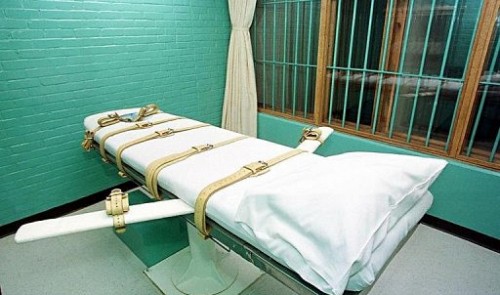The abolition of the death penalty has been proposed for seven crimes under the current Penal Code, Deputy Minister of Justice Dinh Trung Tung said in a seminar on Tuesday, citing an amendment to the code.
>> An audio version of the story is available here
>> Justice ministry propounds reduction of death penalty
Meanwhile, another amendment has been proposed to include three new crimes in the code, Tung said. The deputy minister released the information at a seminar held by the National Assembly Justice Committee in the northern province of Hoa Binh to discuss a number of basic orientations for amending the Penal Code. One of the major amendments to the Penal Code is to limit the scope of capital punishment, Tung told the seminar.
He said the board drafting amendments to the code has advised that the death penalty be scrapped for seven crimes, including plundering property, destroying important national security works and/or facilities; disobeying orders in the military; surrendering to the enemy, which is applicable in the army; undermining peace, provoking aggressive wars; crimes against mankind; and war crimes. Besides, capital punishment has been recommended to be maintained only for the crime of “illegally trading in narcotics” and be abolished for all the other drug-related charges, Tung said. He told the seminar that death sentences should be applied to offenders who have committed especially serious crimes that infringe upon human life – such as murder in a cruel manner, murder and robbery, murder and rape, or murder for mean purposes – or pose serious threats to social order and safety and to the development of society, as possibly seen in drug-related cases. If the amendments are approved, the number of crimes subject to the death penalty in Vietnam will be reduced to 15 from the current 22.Death should be maintained for corruption convictions Most of the seminar attendees agreed to these proposed amendments, but emphasized that they should not be extended to corruption-related crimes, which the country is trying to prevent and fight. Speaking at the event, Associate Professor Dr. Nguyen Tat Vien, a standing member of the Central Steering Committee for Justice Reform, said, “There have many opinions saying that the death penalty should be abolished for corruption or embezzlement charges, but I think that such an abolition should not be approved given the current situation.” Nguyen Son, deputy chief judge of the People’s Supreme Procuracy, also said that maintaining death sentences for corruption crimes is one of the ways to prove the resolve of the Party and State to combat corruption.Three new charges proposed In the spirit of respecting and ensuring full enforcement of human rights as well as citizens’ basic rights and obligations specified in the 2013 Constitution, another amendment has been proposed to include three new charges in the Penal Code, Deputy Minister Tung said. The new charges include infringing upon citizens’ voting rights in referendums held by the State; altering referendum results; and infringing upon the right to freedom of speech, the right to freedom of the press, and citizens’ rights to demonstration, Tung said. In addition, heavier penalties have also been suggested for a number of existing crimes mentioned in the code, including infringement upon citizens’ places of residence; infringement upon other persons’ privacy or the safety of their letters, telephone and/or telegraph; illegally forcing laborers or public employees to leave their jobs; infringement upon citizens’ rights to assembly and association, rights to freedom of belief and religion; and infringement upon the rights to complain and/or denounce, the official said.
|
Lethal injection for death penalty In terms of execution methods, Vietnam switched from firing squad to lethal injection in November 2011, under Decree 82/2011 by the government. However, the new execution method took years to implement due to a failure to import the needed drugs from the European Union, which banned the exportation of lethal injection drugs because it considers capital punishment a violation of human rights. The Vietnamese government then issued Decree 47/2013 to amend Decree 82, allowing domestically produced drugs to be used for executions. Decree 47 took effect on June 27, 2013 and the first execution by lethal injection was carried out in Hanoi on August 6, 2013. |
Like us on Facebook or follow us on Twitter to get the latest news about Vietnam!























































